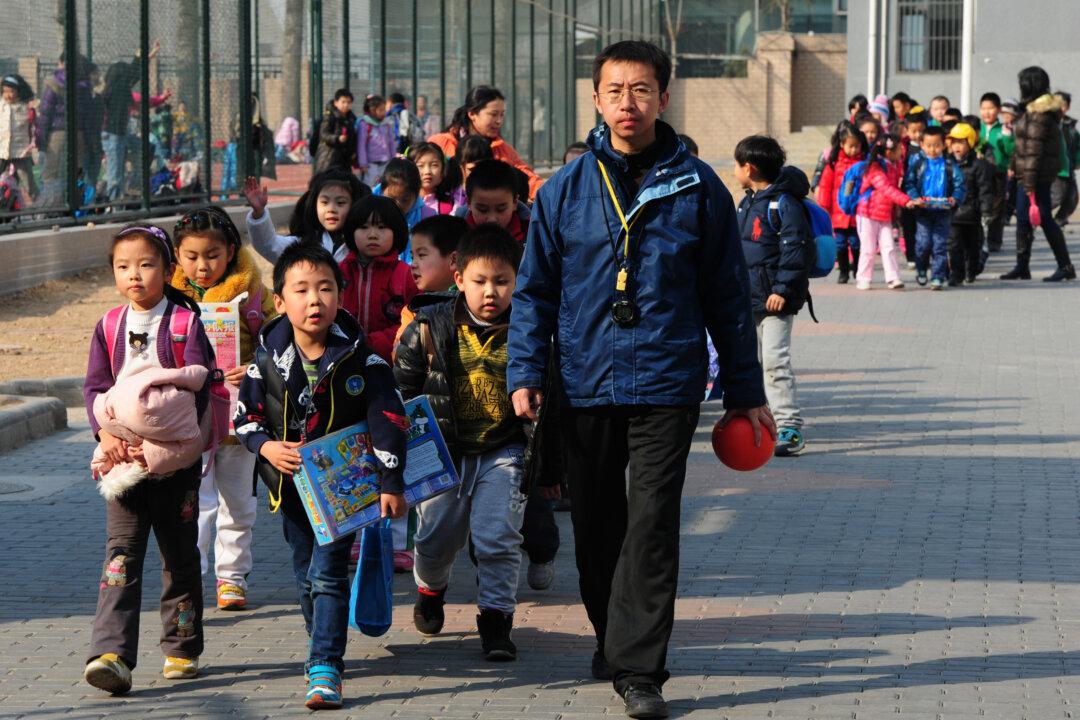The following article is an answer to the question “Have Beijing’s overly high housing prices destroyed the young generation’s creativity and passion?” The question was posted on Zhihu in early March, a Chinese question-and-answer website (like Quora) popular among young people. Despite being an outstanding researcher, the author discusses how housing and residency-related government policies caused him to leave his plum job in desperation. The article earned the most “likes” (over 27,000) among the more than 4,500 answers, and has become widely spread and echoed on the Chinese internet. It seemed to resonate with so many Chinese because it depicts the plight of an individual who, in theory, has done everything right and should thus be a beneficiary of China’s system. We offer the translation as a candid window into contemporary Chinese society. — The Epoch Times translation team.
I graduated from Peking University [widely regarded as one of China’s best] with a Master’s and a doctoral degree, and have been working at the Chinese Academy of Sciences in Beijing for three years. Earlier this year I quit my job and moved to Nanjing to work at a university there.
Why did I leave Beijing? There were lots of reasons, but they all boil down to housing.
Many netizens say they feel desperate because pay raises can’t keep up with rising house prices in Beijing. But for me, this was not the most important factor. After all, I had chosen a research position at the Academy of Science that paid less than 10,000 yuan (US$1,450) per month over a high-salary industry job; I was psychologically prepared to make do with a low income. I finally made up my mind to leave when my son had almost reached school age.
Beijing’s primary school registration is handled neighborhood by neighborhood according to the priority rank of parents’ household registration [known as ‘hukou’ in Chinese] and their social security status.
For example, my wife and I were ranked No. 6, as we rented in the neighborhood, and I worked in the neighborhood. Our status was only one level higher than some mobile populations who don’t own property there, such as barbers and vegetable vendors.
In previous years, during the planned economy era, employees of the Academy of Sciences enjoyed benefits for their children’s education. At that time, the nationally-renowned elementary schools in Zhongguancun [a famous technology hub in Beijing] used to be affiliated with the Academy, and children of employees of the Academy attended these schools.
However, with the increase of home prices in good school districts, these affiliated schools were assigned to the District Board of Education. There was no longer any relationship with the Academy of Sciences, and the government instead assigned some poor schools in other areas to be affiliated with the Academy.
I can still somehow endure this change. After all, the local school and the Academy both promised that children of employees of the Academy could attend these schools. But the reality was different: not all children of Academy employees were guaranteed attendance in these schools because first priority went to the children living in that neighborhood. No one was able to tell me what would happen to the left-over children. I did not want to wait for the final answer, and decided to leave.
I also asked myself whether it was right to give up a job at the country’s top research academy and leave Beijing for an imaginary “good school district.” In my father’s words, I destroyed my own future.
Actually, even if my child were to attend one of the designated good schools, there is no guarantee that he would do well. What completely disappointed me are the following facts. Looking back at my own life, I took the path of attending good schools all the way to the Chinese Academy of Sciences. I had the Beijing hukou registration. But I am not even able to provide my child with the resources given to me by my father who lived in a small town all his life.
I have a doctoral degree and an overseas education. I have been at the top of the science field, at a cutting-edge scientific research level. I thought I was an important person because I had presented research work in English at international academic conferences that drew interest by my international peers. However, when I stepped down from the podium, I still had to face the landlord who took two-thirds of my monthly salary, and with inflation that my salary couldn’t catch up with. My employers were now telling me to join the raffle for my child’s education, and that children of employees who didn’t own houses would be the last on the school admission waiting list.
In school I was told not to worship money, and that knowledge is wealth. When I did research I was told not to be impetuous, learn to sit on the cold bench. When I started working, I was told to calm down and focus on research, instead of worrying about money. I followed all of their advice. But reality taught me the lesson that knowledge does not equal wealth, and it can’t be used even for a down payment on a mortgage. Sitting on the cold bench publishing influential papers doesn’t get you a promotion, which is the prerequisite for my child’s school enrollment. Private schools of the Science Academy cost 60,000 yuan ($8,709) a year. Those with official connections or access to huge wealth will be able to take care of themselves.
The lesson here is that my story — that of quietly working hard, being patient, and trusting that things will work out — has been a complete failure. I’m an object lesson in what not to do.





